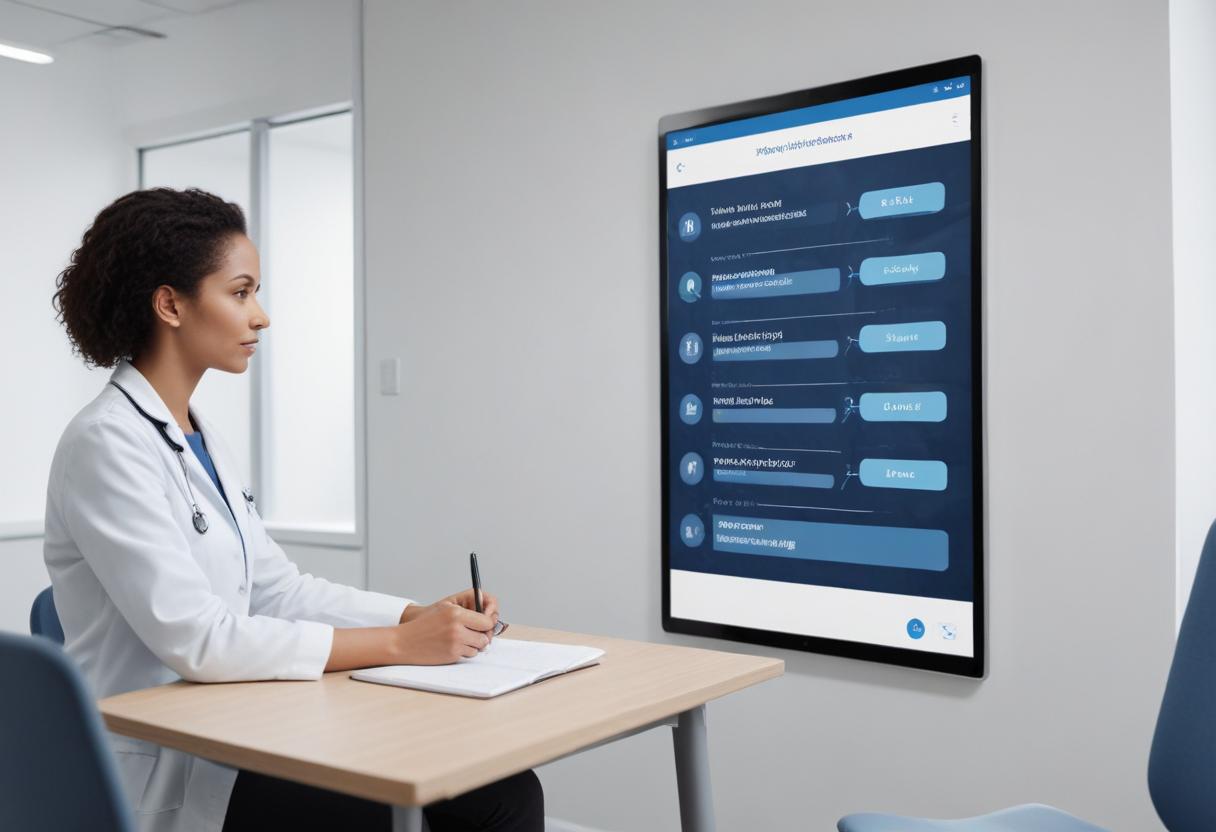AI in Outpatient Services: Revolutionizing Appointment Scheduling for Better Patient Care

Outpatient services form a critical part of the healthcare ecosystem, catering to a vast number of patients seeking medical advice, diagnosis, and treatment without the need for hospitalization. One of the most significant challenges outpatient services face is managing appointment scheduling efficiently. Long wait times and missed appointments can lead to decreased patient satisfaction, lost revenue, and underutilized resources. Artificial intelligence (AI) is poised to revolutionize outpatient services by streamlining appointment scheduling and enhancing overall patient care.
Appointment scheduling in outpatient services is often a complex and cumbersome process. Traditional scheduling methods rely heavily on manual inputs and static systems, which are prone to errors and inefficiencies. Patients frequently experience long wait times, while healthcare providers struggle with last-minute cancellations and no-shows, leading to gaps in the schedule and underutilized resources.
AI-driven systems offer a sophisticated approach to appointment scheduling, addressing the limitations of traditional methods. By leveraging advanced algorithms and real-time data, AI can optimize scheduling processes, ensuring that appointments are allocated efficiently and resources are utilized effectively.
Real-Time Slot Optimization: AI systems can analyze a variety of factors, including patient preferences, provider availability, and historical appointment data, to optimize scheduling in real-time. This dynamic approach ensures that slots are filled efficiently, minimizing wait times for patients and maximizing the use of healthcare resources.
Automated Reminders and Confirmations: One of the significant benefits of AI in appointment scheduling is the ability to send automated reminders and confirmations to patients. These reminders can be sent via text messages, emails, or phone calls, reducing the likelihood of missed appointments and last-minute cancellations. By ensuring that patients are reminded of their appointments well in advance, AI helps maintain a more consistent and predictable schedule.
Predictive Analytics for No-Show Management: AI can utilize predictive analytics to identify patients who are at a higher risk of missing their appointments. By analyzing historical data and patient behavior, AI systems can flag potential no-shows, allowing healthcare providers to take proactive measures, such as sending additional reminders or double-booking slots to mitigate the impact of cancellations.
Seamless Integration with Electronic Health Records (EHRs): AI-driven appointment scheduling systems can seamlessly integrate with EHRs, providing healthcare providers with comprehensive access to patient information. This integration ensures that scheduling decisions are made based on the most up-to-date and relevant patient data, improving the overall coordination of care.
Patient Self-Scheduling: AI empowers patients to take control of their own appointment scheduling through user-friendly self-scheduling platforms. These platforms allow patients to view available slots in real-time and book appointments at their convenience. By offering patients the flexibility to schedule their appointments, healthcare providers can reduce administrative burdens and enhance patient satisfaction.
Several healthcare organizations have successfully implemented AI-driven appointment scheduling systems, leading to significant improvements in operational efficiency and patient satisfaction.
Kaiser Permanente: Kaiser Permanente, one of the largest integrated healthcare systems in the United States, has implemented an AI-powered appointment scheduling system. The system uses machine learning algorithms to optimize appointment slots and send automated reminders to patients. As a result, Kaiser Permanente has seen a reduction in no-show rates and an improvement in overall appointment adherence.
Cleveland Clinic: Cleveland Clinic has adopted AI-driven scheduling to manage outpatient appointments more effectively. The system integrates with the clinic’s EHR and utilizes predictive analytics to forecast patient demand. This approach has led to a significant reduction in wait times and an increase in patient satisfaction scores.
Massachusetts General Hospital: Massachusetts General Hospital has deployed an AI-based solution to enhance its appointment scheduling process. By leveraging real-time data and predictive analytics, the hospital has been able to optimize scheduling, reduce administrative workload, and improve the patient experience.
The integration of AI into outpatient appointment scheduling is just the beginning of a broader transformation in healthcare. As AI technologies continue to evolve, we can expect even more sophisticated solutions that will further enhance the efficiency and effectiveness of outpatient services.
Advanced Predictive Analytics: Future AI systems will leverage more advanced predictive analytics to anticipate patient needs and optimize scheduling accordingly. These systems will consider a wide range of variables, including patient health data, social determinants of health, and external factors such as weather patterns, to make more accurate predictions.
Personalized Patient Engagement: AI will enable more personalized patient engagement by tailoring communication and appointment reminders to individual preferences and behaviors. This personalized approach will enhance patient satisfaction and adherence to scheduled appointments.
Enhanced Resource Allocation: AI will play a crucial role in optimizing resource allocation across outpatient services. By predicting patient demand and identifying patterns in appointment scheduling, AI systems will ensure that healthcare providers are adequately staffed and equipped to meet patient needs.
Telehealth Integration: The integration of AI with telehealth platforms will further streamline appointment scheduling. AI-driven systems will seamlessly coordinate in-person and virtual appointments, providing patients with flexible and convenient access to care.
AI is set to revolutionize outpatient services by transforming appointment scheduling processes. By optimizing scheduling, reducing wait times, and enhancing patient engagement, AI-driven solutions will improve the overall efficiency and effectiveness of outpatient care. Healthcare providers that embrace AI technologies will be better positioned to meet the evolving needs of their patients and deliver high-quality, patient-centered care.
At AiDOOS, we specialize in connecting healthcare institutions with AI experts to implement cutting-edge solutions. If you're interested in exploring how AI can transform your outpatient services, we would be delighted to provide a quick demo.
Ready to revolutionize your outpatient appointment scheduling with AI?
Contact Us today to schedule a demo and discover how our AI solutions can enhance your hospital's efficiency and patient satisfaction.

For modern telecom enterprises, delivering exceptional QoS is no longer optional—it’s a brand differentiator and a strategic lever for growth. Static provisioning models won’t cut it in a world of hyper-dynamic data usage.